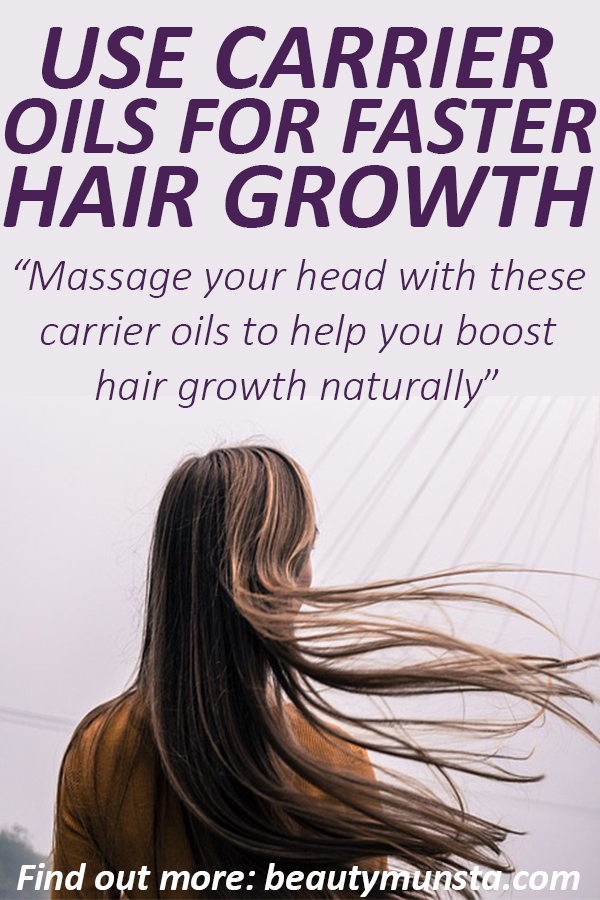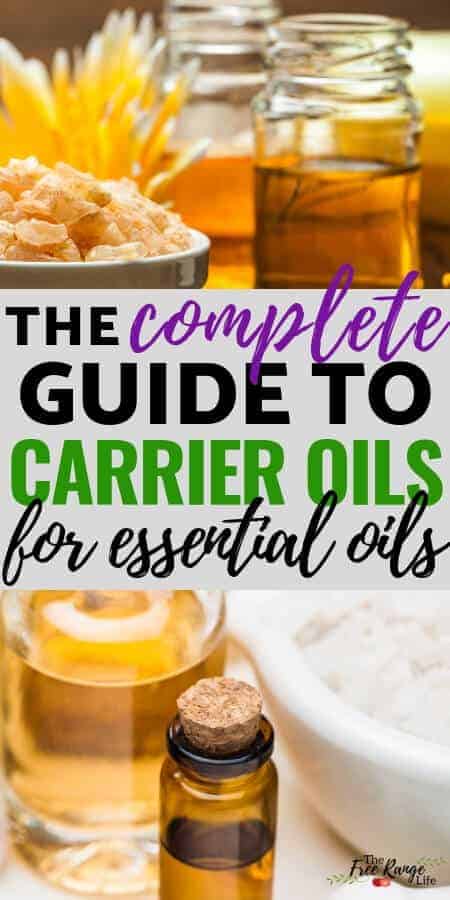Table Of Content
In terms of its effects on hair, we've found that it's particularly effective at taming frizz and adding shine, without weighing hair down or leaving any greasy residue. It's also been great for soothing dry scalps and promoting healthy hair growth. Not only do carrier oils carry your essential oil, they also enhance your hair and skin, by providing their own nourishing benefits. Here are the top 20 carrier oils to use along with your favorite essential oils.
How Plants Can Optimize Athletic Performance
Carrier oils are plant-based oils used to dilute and easily apply essential oils. Like essential oils, carrier oils can be applied to your skin, hair, and nails, and they offer additional benefits like promoting hydration. The Skivia Moringa Carrier Oil is extracted from the seeds of the moringa tree by the cold-pressed method.

#2 Argan Oil and Rosemary Oil Blend:
When you apply jojoba oil on your hair, your hair will become soft and manageable. We highly recommend Viva Naturals Organic Fractionated Coconut Oil for anyone looking for a versatile, organic, and non-greasy carrier oil for hair and skin. Overall, we highly recommend Cliganic Organic Jojoba Oil to anyone looking for a high-quality carrier oil for their hair.
Camelina seed oil
They usually come from vegetable or nut oils, but a few are derived from animals. There’s a wide variety of carrier oils to choose from, and each may serve slightly different purposes and be more appropriate for you at different stages and occasions in your life. Carrier oils that are going to be used on the body can be slightly heavier than face oils. Combine them with essential oils like lavender for a soothing massage or peppermint for a quick pick-me-up.
A carrier oil is a plant-based oil derived from seeds, kernels, or nuts, often obtained through cold pressing. Carrier oils are primarily used to dilute concentrated essential oils, making them safer for skin application and preventing irritation or reactions. Carrier oils have their own unique properties, such as moisturizing and nourishing abilities, which can complement the benefits of essential oils. Examples of carrier oils include coconut oil, almond oil, jojoba oil, and avocado oil. Due to carrier oils multiple advantages for the health of the hair and scalp, they are commonly employed in hair care products.
Best peppermint hair oils: 5 picks for healthier and shinier hair - Health shots
Best peppermint hair oils: 5 picks for healthier and shinier hair.
Posted: Mon, 11 Mar 2024 07:00:00 GMT [source]
best carrier oils for improving hair health
Olive oil is one of the most commonly used carrier oils in general, and especially in the natural hair community. The antioxidants in the carrier oil also protect hair from environmental damage and prevent premature greying. Lastly, vitamins E, A, and C condition the hair and promote healthier growth. Coconut oil, black seed oil, peppermint oil, argan oil, castor oil, etc. are some of the oils that gives faster hair growth. Sesame oil is great for hair as it contains necessary vitamins and minerals that promote hair growth.
Best Carrier Oils for Hair Care
With its many benefits and uses, it is sure to become a staple in your beauty routine. While research suggests there are health benefits, the FDA doesn’t monitor or regulate the purity or quality of essential oils. It’s important to talk with a healthcare professional before you begin using essential oils and be sure to research the quality of a brand’s products. Most carrier oils are unscented or lightly scented and don’t interfere with an essential oil’s therapeutic properties.
Some of the top essential oils for hair health include rosemary essential oil, lavender essential oil, peppermint essential oil, and tea tree essential oil. Coconut oil is a popular carrier oil known for its ability to penetrate the hair shaft and reduce protein loss. It can help to nourish and strengthen hair, while also adding shine and reducing frizz.

It’s a natural remedy for thinning hair and a lovely addition to your hair care arsenal. Carrier oils like argan oil, coconut oil, and jojoba oil work wonders in enhancing hair texture and imparting a healthy shine. These oils smooth the hair cuticle, reducing frizz and static, and leaving behind a glossy, radiant finish. Whether you have straight, curly, or textured hair, incorporating these oils into your hair care routine can elevate your hair game to the next level. If you're looking to boost hair growth and increase hair thickness, certain carrier oils excel in this department. Castor oil, known for its ricinoleic acid content, stimulates hair follicles, leading to faster hair growth.
In fact, many natural hair care enthusiasts swear by carrier oils as an essential step in their routine for achieving healthy, hydrated locks. In this article, we'll explore some of the top carrier oils for locking in moisture and how you can incorporate them into your own hair care regimen. When integrating oils into your hair-care routine, Kay suggests starting slow to see the effect on your hair health.
A few examples of colorless (or nearly colorless) carrier oils include castor oil, safflower oil, and sweet almond oil. Castor oil, marula oil, neem oil, plum oil, prickly pear oil, pumpkin seed oil, and tamanu oil are all considered viscous liquids, which means they are thicker and slow to flow. Solid carrier oils like coconut oil and palm oil aren’t considered viscous because they are solid at room temperature.
Derived from the kernels of the Moroccan argan tree, argan oil is revered for its rich nutrients and antioxidants. Its lightweight texture makes it ideal for all hair types, providing deep hydration without greasiness. Argan oil strengthens hair strands, reduces frizz, and enhances shine, making it a staple in hair care routines worldwide.
Peppermint essential oil is perhaps best known for its skin care benefit, although it can do wonders for your hair and scalp too. Castor oil is great for hair growth and hair loss, helping to make hair feel less dry and protecting your hair follicles. Whatever oil you choose, avoid using it on your lips, eyes, or other sensitive areas after it’s been mixed with an essential oil. Most are suitable to use with any essential oil, but you should consider a few things before choosing one. Carrier oils are used to dilute essential oils and “carry” them to your skin. That’s because essential oils are potent and can cause irritation when applied directly to your skin.
If your hair is especially dry or damaged, you might need to use it more frequently than once a week. Choose a high quality oil that is pure and contains no artificial ingredients or fragrances. Cold-pressed oils usually don’t involve potentially-harmful bleaches in their process, they don’t contain synthetic fragrances and they don’t have any harmful solvent residues. Ricinoleic acid, which has anti-inflammatory and antibacterial properties, is abundant in castor oil. These characteristics can assist in balancing and lowering excessive oil production in the scalp. Moreover, it has excellent cleansing capabilities that help to eliminate excess oil, grime, and flakes from the scalp.
It contains antioxidants, fatty acids, and zinc, which nourish the scalp and promote healthy hair growth. The zinc in pumpkin seed oil also helps maintain healthy testosterone levels, which is essential for hair growth. These nutrients nourish the scalp and hair, promoting healthy hair growth and avoiding hair loss.
If you want to nourish and protect your locks from damage and stave off dryness, argan oil could be a good choice. Head massage with hot oil is one of the most effective ways to use carrier oils for hair growth. Heating the oil and massaging it into the scalp increases blood circulation and can help increase blood flow to the scalp and promote hair growth. To do a hot oil treatment, heat the oil of your choice in a double boiler or in a glass jar placed in a pot of warm water.
No comments:
Post a Comment